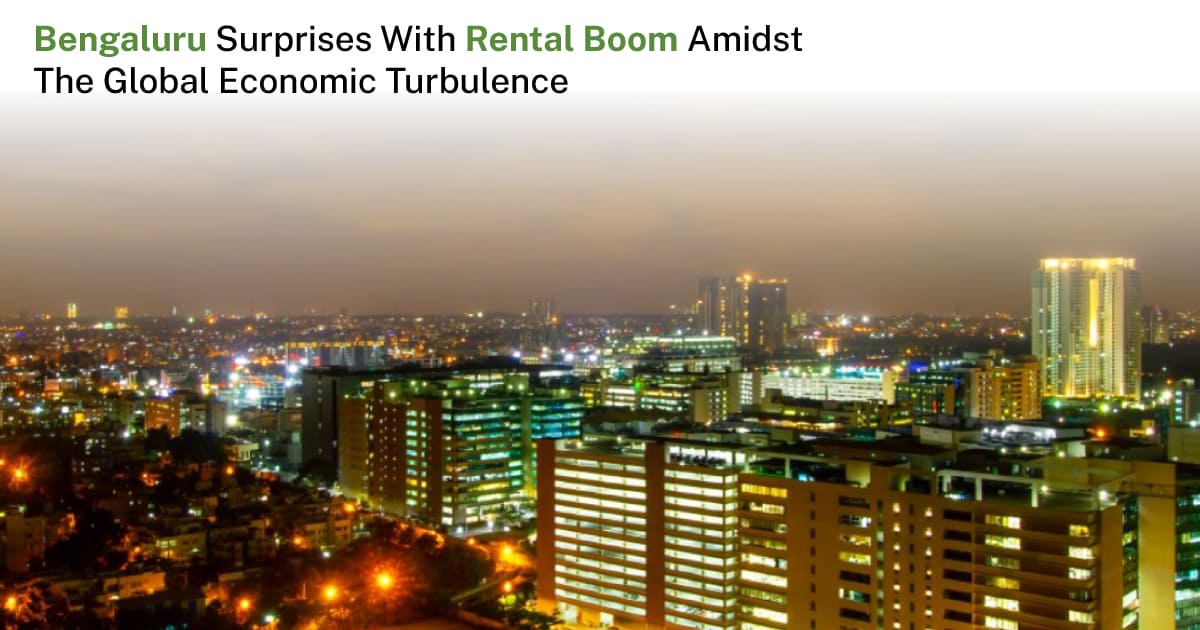
Bengaluru Surprises with Rental Boom Amidst the Global Economic Turbulence
In the face of an economic slowdown across the world, India’s real estate market stands tall. Exceeding expectations, a remarkable surge over the course of two years. A major instance of growth in the sector has been noticed in the rental market, which has emerged as an epicentre for investors seeking profitable returns.
The real estate sector has experienced a surge in activity, with the epicentre being the tech-centric cities like Bangalore, Chennai and Hyderabad that have also shown similar trends of increasing rental reflecting the changing dynamics in the Indian real estate landscape. Interestingly though, the brewing phenomenon in the market demands is not mirrored by other sectors, since it is apparent that many are grappling with uncertainties.
Leading the charge amongst the cities is the country’s Silicon Valley, Bengaluru. Regardless of the sluggish growth outside of India, the city has managed to attract investors ensuring an overall boost in the overall economic activity in the city. Housing rents have skyrocketed in the city with a striking average inflation rate of 24%. Attributed primarily to the reopening of offices in major cities, driving demand for properties around IT parks and office hubs triggering an upward price spiral.
Market Trends & Challenges – Bengaluru attracts working professionals from across India. Most of them live in rental accommodations. As the fog of the pandemic has lifted return-to-office norms have pushed the remote workers in tier 2 and tier 3 cities to relocate. This leads to an increase in the rental hikes on both commercial and residential properties.
The office spaces are in high demand pushing rent higher in the commercial real estate realm. While on the residential end, this relocation leads to an increase in demand for rental accommodation.
A challenge that is hindering the growth of the market is surplus demand in the market. The increasing demand for rented accommodation leads to an increase in prices due to disruptions in the real estate supply chain. Builders and developers face hurdles in increasing supply, leading to a persistent supply-demand mismatch in the market especially in the primary micro market.
Further, the increased demand from individuals transitioning from paying guest accommodations to houses also fuels rental inflation. While the rental surge presents lucrative opportunities for investors, it also poses challenging implications for the tenants, particularly in meeting the growing demand. This scenario highlights the robust demand-supply dynamics in Indian real estate where the demand is outstripping supply in key metro areas.
India’s real estate rental market has experienced unprecedented growth amidst global economic uncertainties surpassing that of global counterparts like Singapore and Dubai which is a positive sign. While addressing the challenges of supply-demand dynamics is crucial for sustaining this growth in the long term, the rental boom presents promising opportunities for metropolitan Indian cities.



